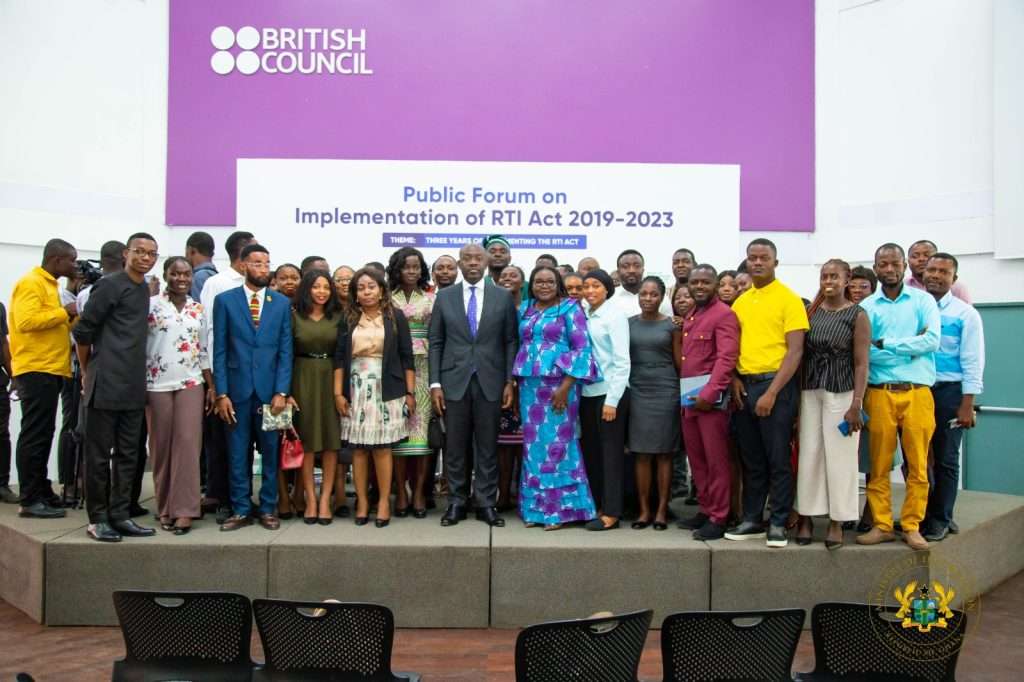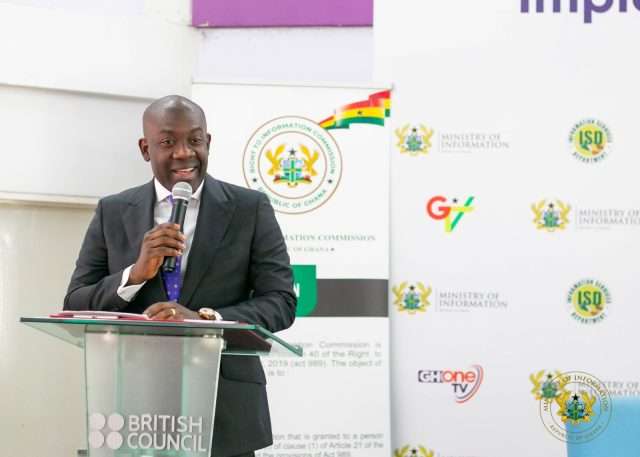Minister for Information, Kojo Oppong Nkrumah has reaffirmed government’s steadfast dedication to the full implementation of the Right to Information (RTI) Act , 2019 (Act 989).
During a Public Forum on the Implementation of the RTI Act on December 13, 2023, Mr. Oppong Nkrumah emphasized the government’s determination to ensure the effective execution of the RTI Act, considering it a crucial step toward a more transparent future.
“As we stand on the precipice of a more transparent future, let us consider the insights gleaned from this research as guiding stars. Our commitment to the Right to Information must be unwavering, and our resolve to address challenges resolute,” he said.
The reaffirmation follows a comprehensive research initiative commissioned by the Ministry of Information, focusing on the processes leading to the passage and enforcement of the RTI Act.
The research, conducted in 2022, examined operational strategies, roles of civil society organizations, and challenges faced during the implementation of the law in Ghana. Minister Oppong Nkrumah shared key findings, citing resource constraints, institutional culture, and delays in Legislative Instrument passage as challenges hindering robust implementation.
Acknowledging the two-decade evolution of Ghana’s RTI Act, the Minister praised collaborative efforts among policymakers, civil society, and citizens, emphasizing the law’s unprecedented framework for transparency.
The Public Forum provided a platform for sharing insights and renewing commitment to the RTI in Ghana. Notable attendees included the Executive Secretary of the RTI Commission, Yaw Sarpong Boateng, Director of the Access to Information Division of the Information Services Department (ISD), Dr. Winnifred Nafisa Mahama, and other key figures who expressed excitement about the law’s progress.

Yaw Sarpong Boateng for his part recognized challenges but highlighted the encouraging progress, urging continued efforts for broader public benefit. Emphasizing collaboration, structured approaches, and committed leadership, stakeholders stressed the significance of immediate Legislative Instrument passage, political will, and active involvement of Civil Society Organizations.
Dr. Winnifred Nafisa Mahama, Director of the Access to Information Division, highlighted the success story of the law, noting its positive impact on public service transparency since its passage in 2019. The collective sentiment emphasized a comprehensive and collaborative approach to address challenges and ensure the lasting success of Ghana’s RTI law.
This, Lecturer and Private Legal Practitioner, Zakaria Tanko Musah urged collaboration, ingrained structures, and committed leadership for the continued success of the RTI law. He emphasized the importance of immediate passage of the Legislative Instrument, political will, and active involvement of Civil Society Organizations.









































